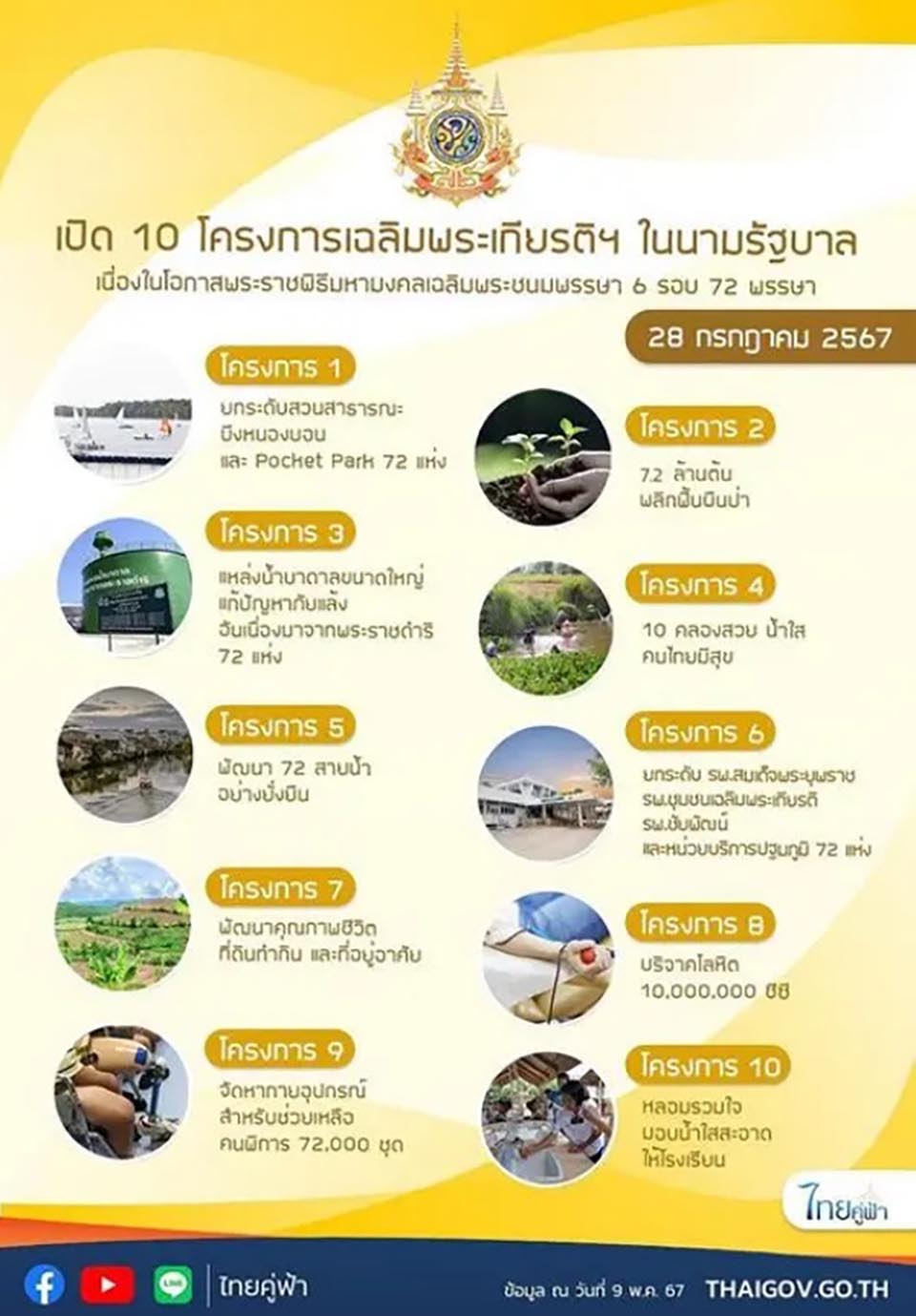
Thailand is implementing a suite of developmental projects commemorating His Majesty the King’s 72nd birthday on July 28. These initiatives, unveiled in alignment with the King’s 6th Cycle Birthday Anniversary, involve a wide array of strategies developed to elevate community welfare, advance environmental sustainability, and strengthen public health nationwide.
The foremost initiative involves substantial enhancements to Bueng Nong Bon Park and the establishment of 72 pocket parks within Bangkok. These developments seek to expand green spaces within the urban environment, offering residents enhanced opportunities for leisure and engagement with nature.
In an extensive environmental effort, the government has committed to planting 7.2 million trees, seeking to mobilize community participation from various sectors to rejuvenate forest areas, improve air quality, and restore the natural ecosystem.
To combat the persistent challenge of water scarcity, the third initiative will augment large-scale groundwater systems across 72 locales nationwide. The measure is tailored to ensure a dependable water supply throughout the year, especially in drought-prone regions.
The fourth initiative focuses on the ecological and public health improvement of ten significant canals and rivers, aiming to enhance the living conditions of populations residing along these watercourses.
Similarly, the fifth project targets the sustainable management of water resources through the dredging of canals and reservoirs in 72 designated areas, thereby enhancing water storage capabilities and facilitating effective water management.
Healthcare infrastructure is set to receive a comprehensive upgrade under the sixth initiative, which will see enhancements to 72 health facilities. The project is expected to elevate the standard of medical care and alleviate the issues of patient overflow, thereby reducing transfer requirements and waiting times at hospitals.
The seventh initiative addresses socio-economic enhancement by allocating 72,000 rai of military land for public use as either farmland or housing. The campaign also includes provisions to refurbish housing for individuals with disabilities and the economically disadvantaged.
The eighth project, a significant health-centric initiative, involves a national campaign to collect 10 million cubic centimeters of blood in collaboration with the Thai Red Cross Society, intended to bolster the blood reserves of hospitals throughout the country.
The ninth initiative focuses on the distribution of 72,000 assistive devices to individuals with disabilities who are economically disadvantaged, fostering their independence and enhancing their integration into societal activities.
Finally, the tenth initiative is dedicated to ensuring the provision of clean drinking water in educational institutions nationwide. This will involve a collaborative effort with various agencies to test and certify the portability of water, ensuring it meets health standards for consumption by students. (NNT)








